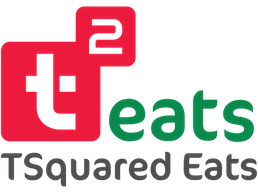At TSquared Eats, we believe that balanced nutrition is more than just a trend; it's the foundation of a vibrant, goal-driven life. Whether you're fueling an active lifestyle, managing a health condition, or simply aiming to feel your best, understanding the science behind what you eat can make all the difference. Let's break it down.
1. What Is Balanced Nutrition?

Balanced nutrition refers to the intake of all essential macronutrients (carbohydrates, proteins, and fats) and micronutrients (vitamins and minerals) in appropriate proportions to meet your body’s needs.
This approach ensures your body maintains energy balance and homeostasis, the stable internal environment that supports optimal functioning.
2. Macronutrients: The Big Three

Carbohydrates
Your body’s primary energy source. Prioritise complex carbs like whole grains and legumes over simple sugars to support sustained energy levels and better glycemic control. Foods with a lower Glycemic Index (GI) help regulate blood sugar more effectively.
Proteins
Critical for muscle repair, enzyme function, and immune support. Focus on high-quality sources that offer essential amino acids your body can’t produce on its own, such as tofu, eggs, legumes, and lean meats.
Fats
Not all fats are bad. Essential fatty acids like Omega-3s support brain health and hormone production. Choose unsaturated fats (from avocados, nuts, olive oil) over saturated fats to improve heart health and manage cholesterol (lipoproteins).
3. Micronutrients: Vitamins and Minerals

There are two types of vitamins, and understanding the difference between them is crucial.
Vitamins
-
Water-soluble: B-complex vitamins and vitamin C are not stored in the body, so regular intake is essential.
-
Fat-soluble: Vitamins A, D, E, and K are stored in fat tissues and the liver. Overconsumption can lead to toxicity.
Minerals
-
Iron & Vitamin D deficiencies are common and can lead to fatigue, bone issues, and immune challenges.
-
Minerals like calcium, magnesium, potassium, and zinc play crucial roles in nerve function, bone strength, and metabolic reactions.
4. The Role of Fiber and Water
-
Soluble fiber (found in oats, chia seeds) helps regulate blood sugar and lower cholesterol.
-
Insoluble fiber (from vegetables and whole grains) supports digestive health and regularity.
-
Fiber also nourishes your gut microbiota and acts as a prebiotic, supporting immune and metabolic function.
Hydration is equally vital, water facilitates nutrient transport, digestion, and cellular energy processes.
5. Understanding Nutrient Bioavailability
Getting nutrients from food is one thing; absorbing them is another.
-
Pair iron-rich foods with vitamin C to enhance absorption.
-
Be aware of antinutrients (like phytates in legumes), which may reduce the bioavailability of calcium or zinc.
-
Cooking and fermentation can often mitigate these effects.
6. Portion Control and Energy Balance
Balanced nutrition also means eating the right amount:
-
Calories in vs. calories out is the basis of energy balance.
-
Understand your Basal Metabolic Rate (BMR) and Total Daily Energy Expenditure (TDEE) to tailor your intake.
-
Hormones like ghrelin (hunger) and leptin (fullness) influence your appetite, and protein-rich meals improve satiety.
7. Nutrient Timing and Meal Composition

-
Follow the balanced plate method: Half vegetables, one-quarter protein, one-quarter complex carbs, with healthy fats.
-
Distribute protein intake evenly throughout the day for optimal muscle protein synthesis.
-
Strategic carb timing (like post-workout) can support insulin sensitivity and recovery.
8. Individualised Nutrition
There’s no one-size-fits-all.
-
Your nutritional needs depend on genetics (nutrigenomics, nutrigenetics), age, gender, activity level, and health conditions.
-
Cultural and ethical choices, whether vegetarian, Mediterranean, or keto, also shape your ideal diet.
At TSquared Eats, our chef-designed, dietitian-approved meals are tailored to meet these diverse needs.
9. Common Myths and Misconceptions
-
Detox diets: Your liver and kidneys already do that job.
-
Low-fat vs. good fat: It’s not about avoiding fats but choosing the right ones.
-
Superfoods: No single food holds the key to health, diversity is essential.
-
Supplements are useful, but whole food nutrition is superior for long-term health.

Ready to Eat Smarter?
Explore our balanced meal plans designed to support your fitness, health, and energy goals.
Balanced nutrition isn’t about restriction, it’s about nourishment. And at TSquared Eats, we make that journey deliciously effortless.
Key Takeaways
- Balance macros (carbs/proteins/fats) + micros (vitamins/minerals)
- Prioritise complex carbs (whole grains), lean proteins (tofu, eggs), and healthy fats (avocados).
- Fibre + hydration boost digestion; pair iron with vitamin C for absorption.
- Track portions via BMR/TDEE; protein manages hunger.
- Time carbs post-workout; spread protein intake.
- Needs vary by age, genetics, and activity.
TSquared Eats simplifies balanced eating.

